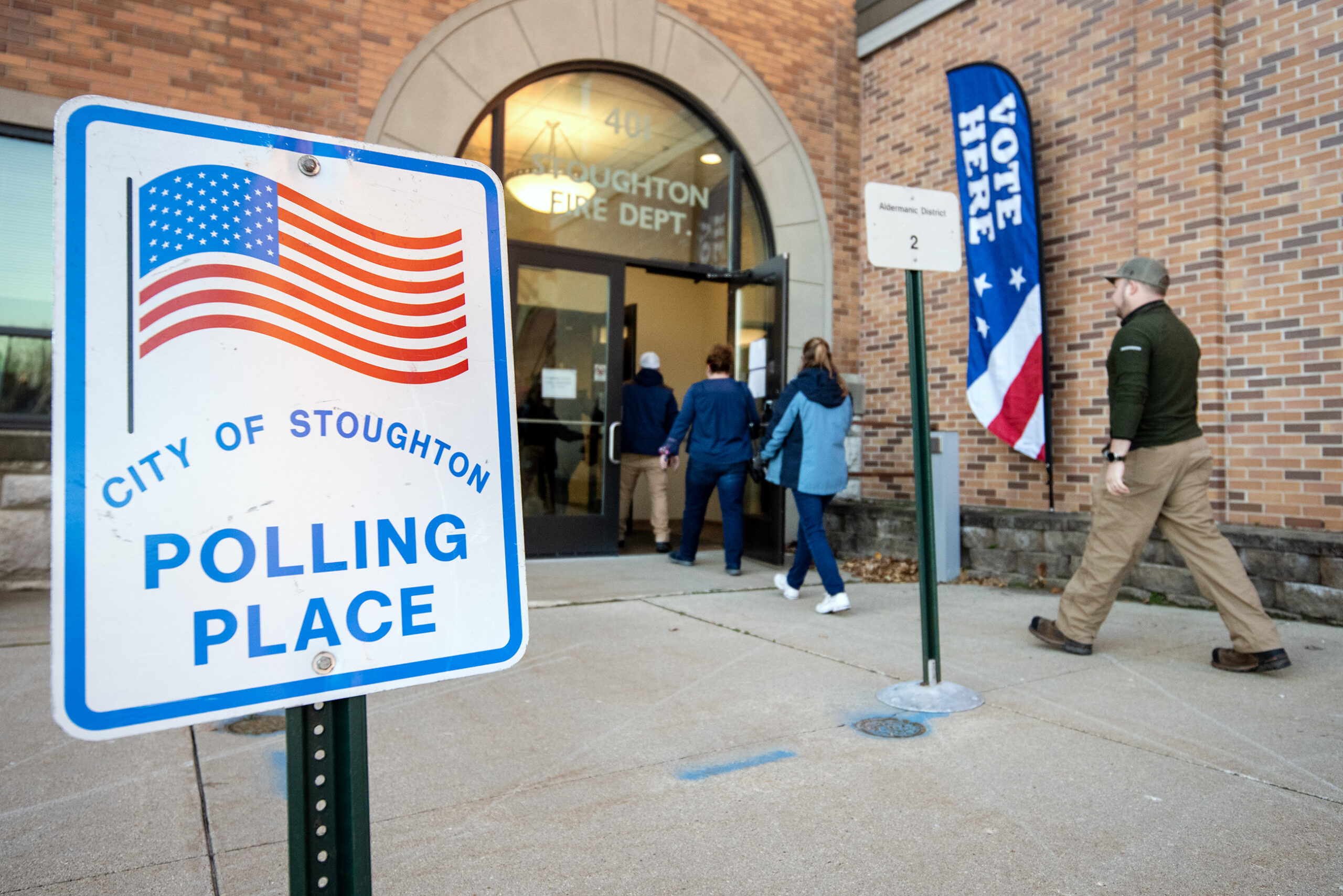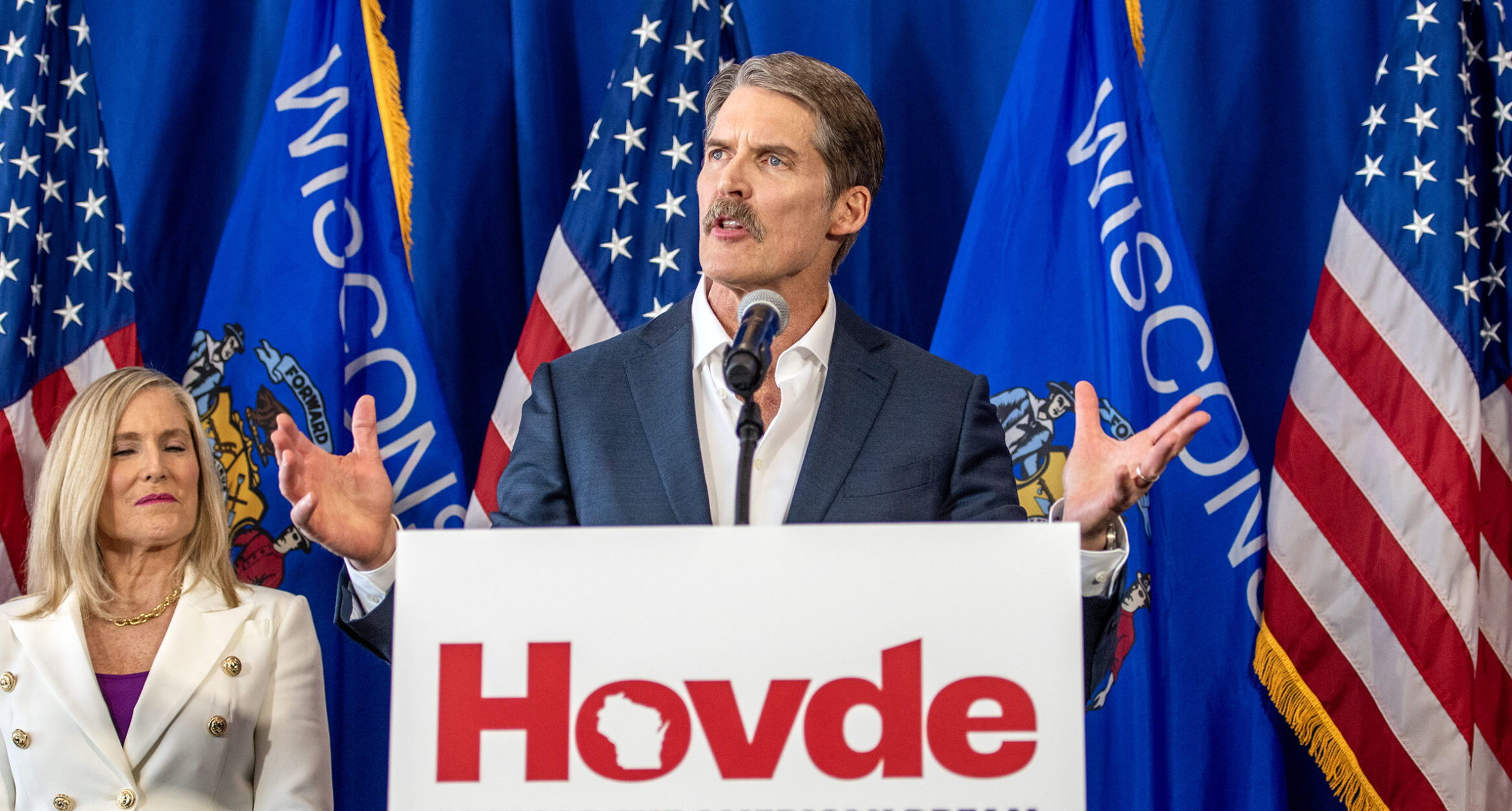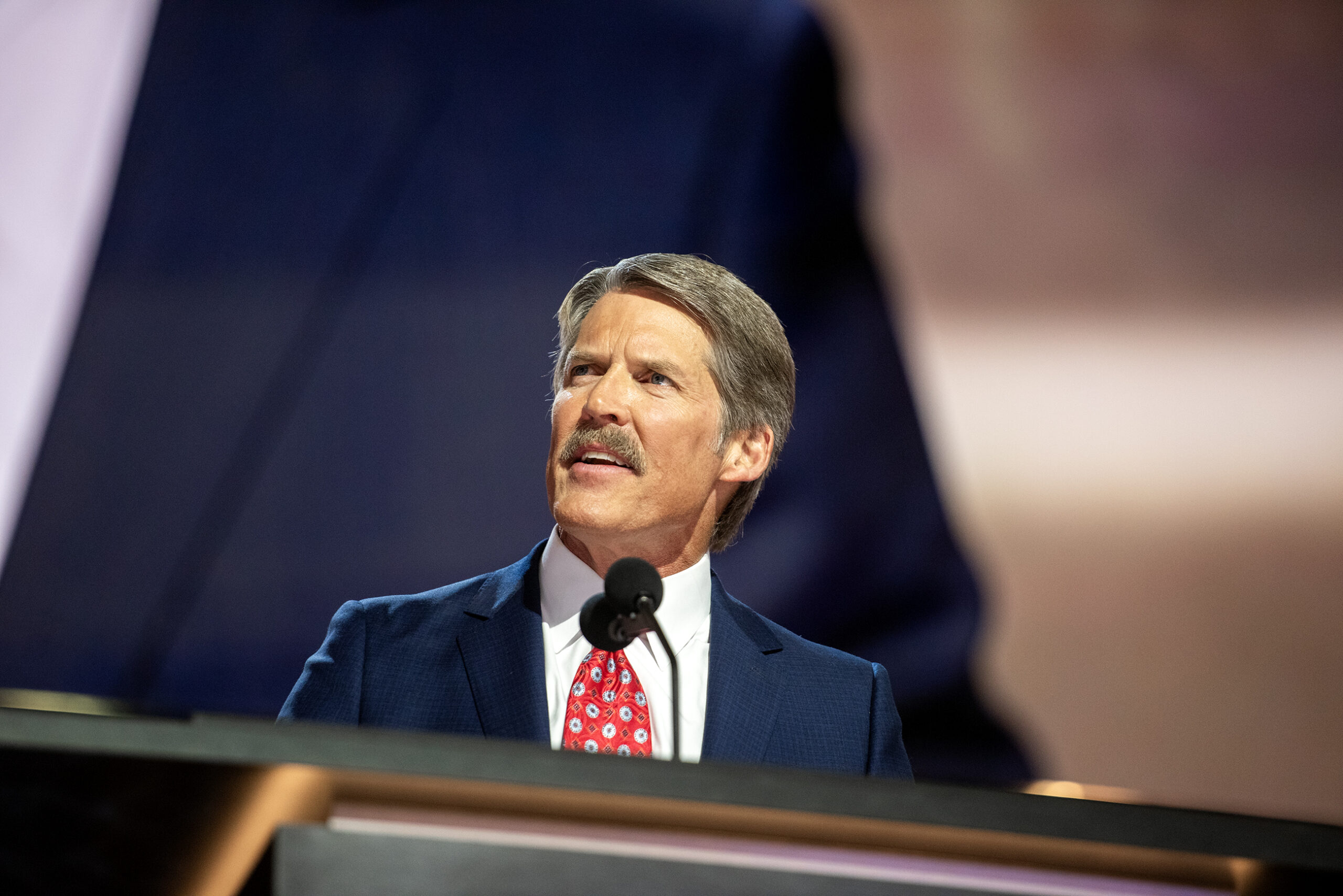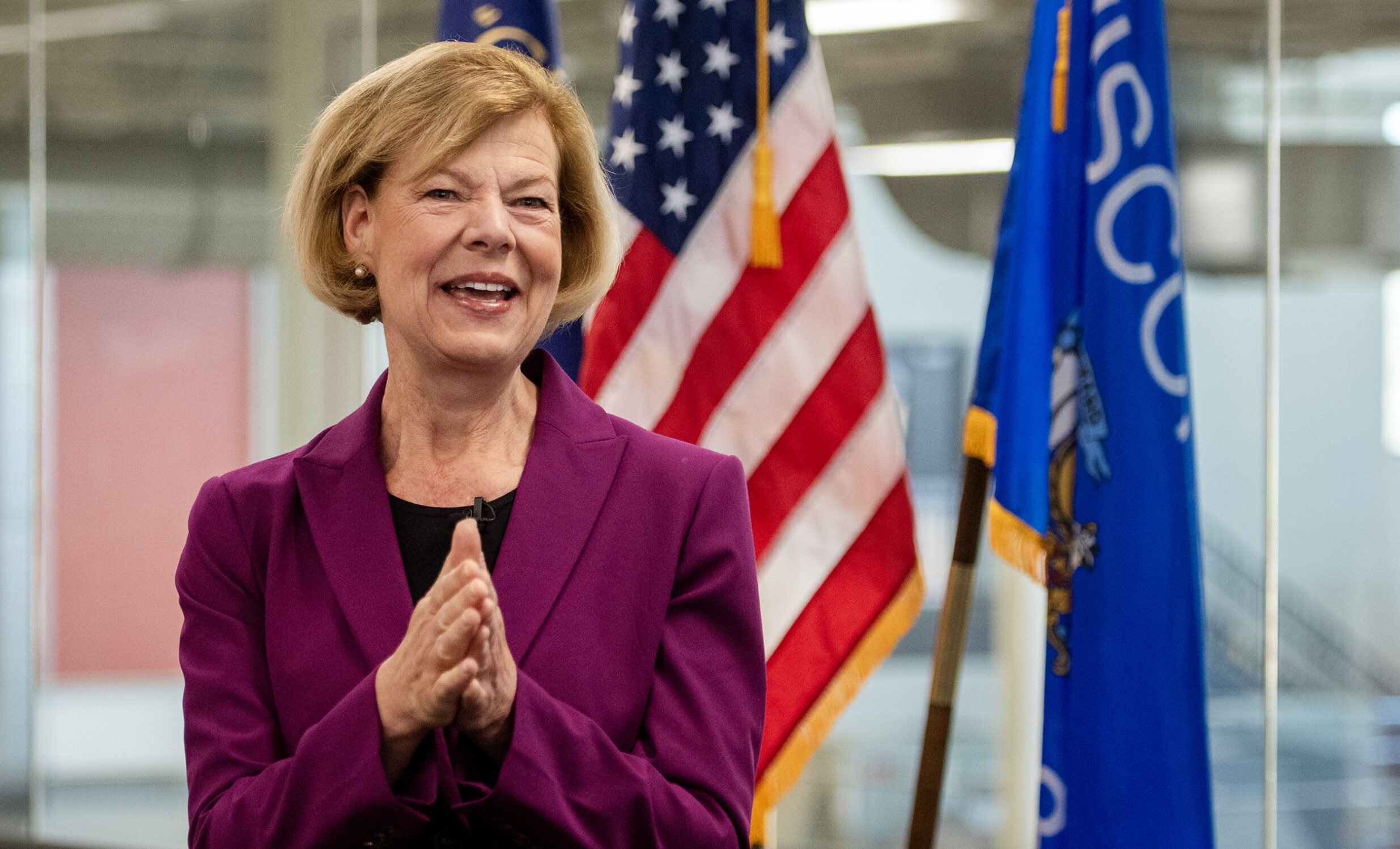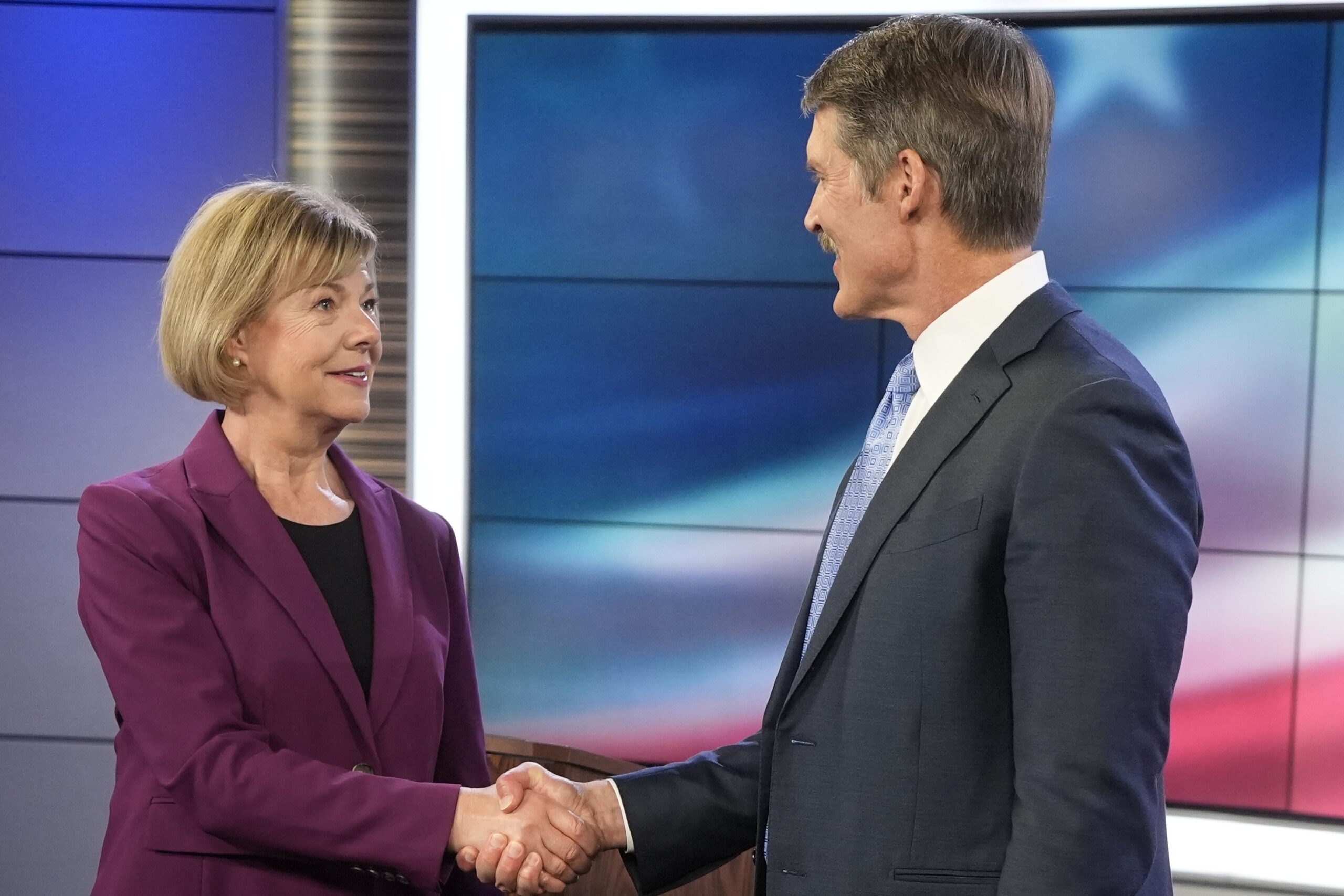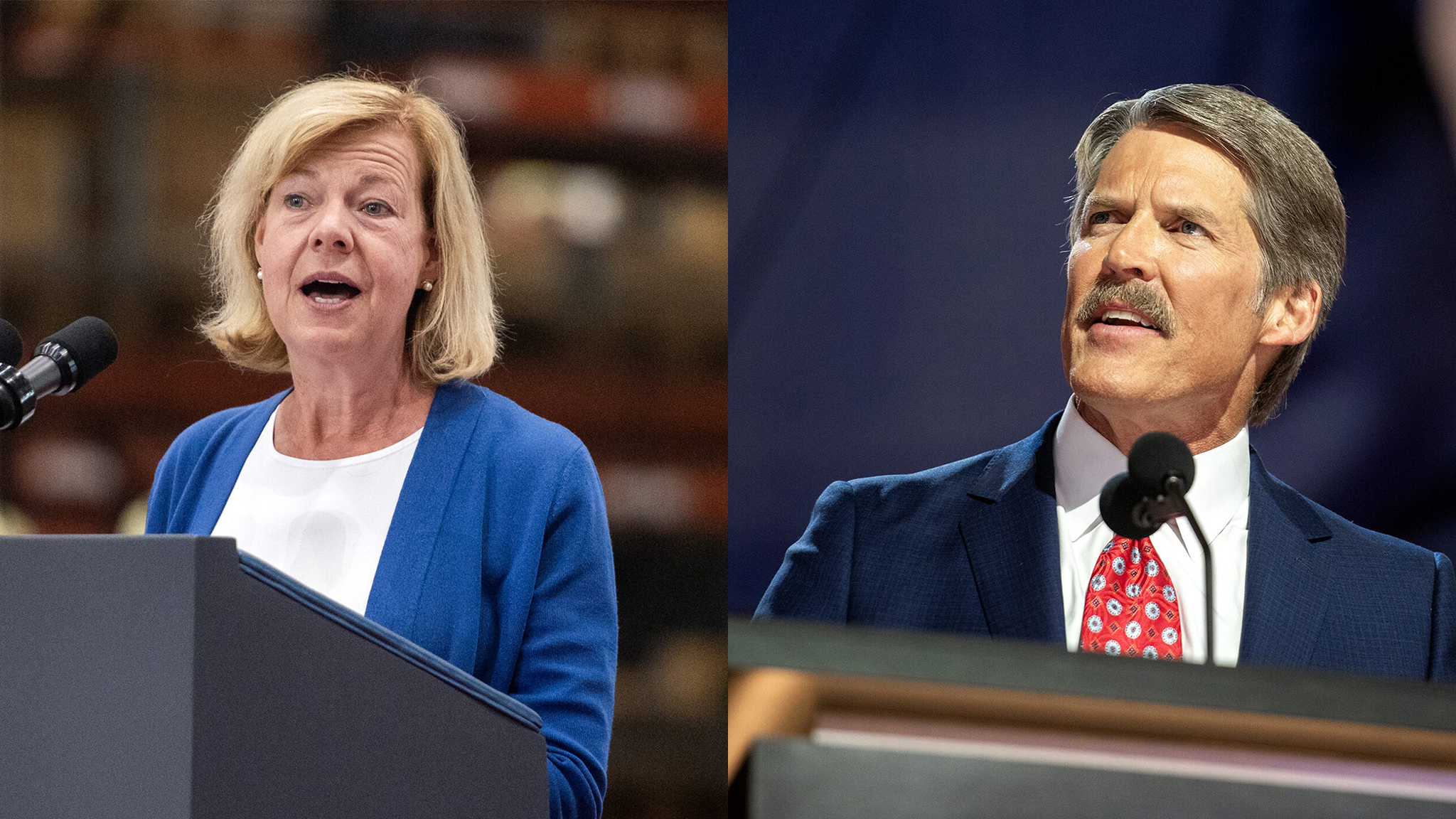As Wisconsin’s U.S. Senate race gets into full swing, Democratic incumbent Tammy Baldwin and Republican challenger Eric Hovde are taking decidedly different approaches to win over voters.
As she vies for a third term, Baldwin is framing Democratic legislative victories through a hyper-local lens, while Hovde is hoping to gain traction with national issues like border security, inflation and a focus on an unpopular president.
On Wednesday, during one of 19 stops on her “Dairyland Tour” of Wisconsin, Baldwin told fellow Democrats in Fort Atkinson that the stakes of the November general election couldn’t be higher. Baldwin told her audience it’s not an exaggeration to say control of the White House, U.S. Senate and U.S. House of Representatives “could be decided right here in the state of Wisconsin.”
Stay informed on the latest news
Sign up for WPR’s email newsletter.
“No pressure, no pressure,” Baldwin said.
Baldwin talked about being in Congress and sponsoring an amendment to the Affordable Care Act, which allows children to stay on their parents’ health insurance plans until the age of 26.
“And I have to tell you, I love going into college campuses and saying, ‘All right, raise your hand if you’re on your parents health insurance,’ and watching almost every hand go up,” Baldwin said.
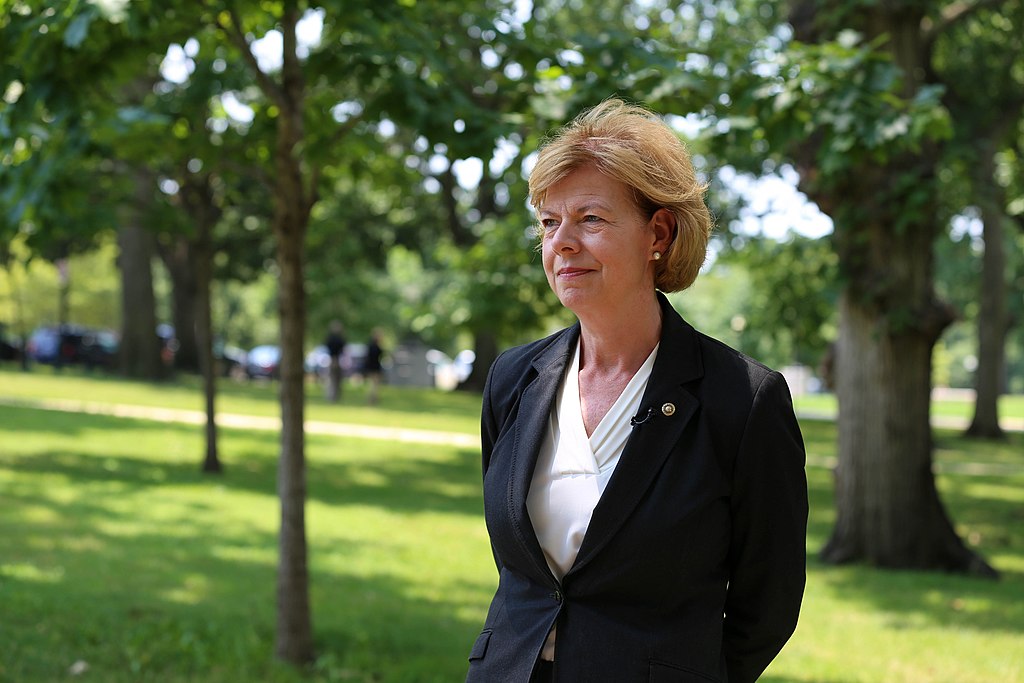
Throughout the rest of her speech, Baldwin framed other legislative wins for national Democrats using stories aimed at driving home the impact of bills passed in Washington D.C. on the lives of Wisconsin residents.
When talking about the Inflation Reduction Act of 2022, Baldwin said residents could soon see lower prices for drugs that treat cancer, hypertension and diabetes because of a provision in the bill allowing Medicare to negotiate costs with pharmaceutical companies.
When talking about the 2021 Infrastructure Investment and Jobs Act, Baldwin touted its “buy America” policies with a story claiming a supporter of former President Donald Trump told her his Neenah foundry job would be in jeopardy without them.
University of Wisconsin-La Crosse Political Science Professor Anthony Chergosky told WPR it’s a familiar tactic from Baldwin.
“The local style of politics has, in many ways, gone out of fashion nowadays, as the local issues seem to not be as much of a priority compared to the national issues,” Chergosky said. “But Baldwin, I think, is very, very strategic in how she focuses on local issues and tries to emphasize the particular policy achievements of the Senate for various communities in Wisconsin.”
Hovde focuses on national issues to solidify GOP support
When businessman Eric Hovde officially announced his entrance to Wisconsin’s Senate race Feb. 20, he framed his campaign with national issues like the economy, inflation, crime and the southern border.
During a campaign event at a Madison office building Hovde and his brother developed, he told Republicans gathered that “the American Dream has been in decline,” particularly during President Joe Biden’s three years in office.
“Economically, we’ve racked up more debt in the last three-and-a-half years than our country’s first 230 years,” Hovde said.
He said interest costs on the nation’s debt has become one of the biggest expenses for the federal government. As a result, Hovde said, “our middle and working class and our elderly who live on fixed incomes” are getting hammered.
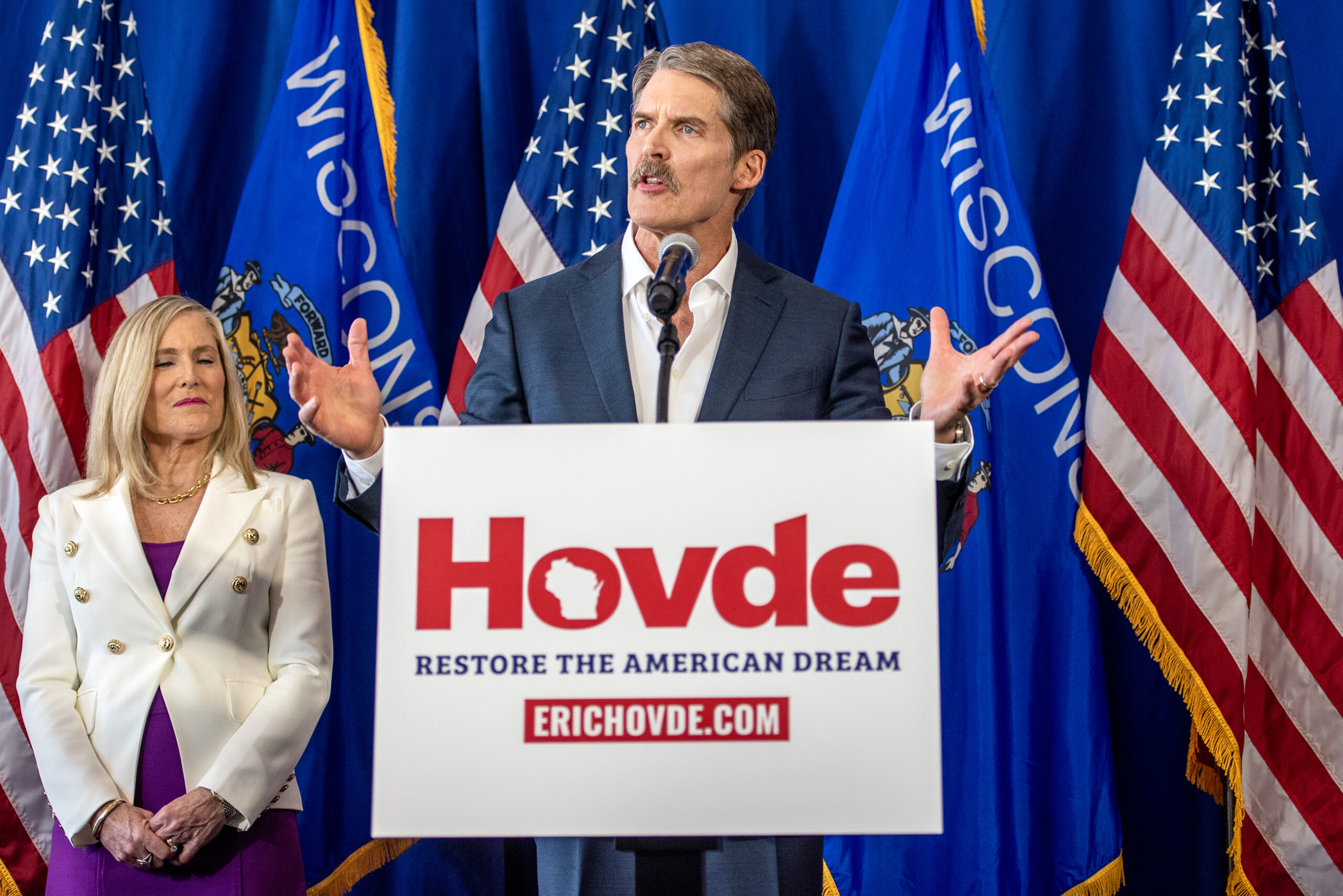
As for the U.S. border with Mexico, Hovde claimed between 9 and 12 million immigrants have crossed into America illegally during Biden’s tenure.
“We don’t have the housing, nor the medical services and infrastructure to care for our own citizens, much less 9 to 12 million people,” Hovde said. “That’s basically double Wisconsin in three years.”
Chergosky said he’s not surprised by the strategy from Hovde. He said public opinion surveys show Republican voters are becoming more concerned about those national issues.
“I think Hovde’s strategy is to try to connect Baldwin with a fairly unpopular president in Joe Biden and also some of the national political issues that are problematic for the Biden administration, and the Democratic Party, most notably the situation at the border,” Chergosky said.
Some big questions remain, Chergosky said: How much does Eric Hovde need to align himself with the MAGA Trump base? And how much traction can he gain in suburban counties near Milwaukee and Wisconsin’s Fox Valley where Republicans like former Gov. Scott Walker and former House Speaker Paul Ryan once dominated?
Chergosky said a potential Republican primary challenge to Hovde would be a “game changer” in that regard.
“If there was a competitive primary in this Republican field for U.S. Senate, then it would absolutely become a race to demonstrate devotion to Donald Trump and his brand of politics,” Chergosky said.
The primary for the Senate race will be he held Aug. 18. But for now, Hovde is the only Republican candidate.
A GOP primary could still happen, though Franklin businessman Scott Mayer announced on March 19 that he won’t be entering the Senate race.
Former Milwaukee County Sheriff and Trump loyalist David Clark has been considering a run and teased a “BIG ANNOUNCEMENT” this week, which turned out to be a sales pitch for a “Badge of Honor” Caribbean cruise.
‘Career politician’ vs. ‘out-of-state’ millionaire
The mudslinging in Wisconsin’s U.S. Senate race began almost immediately. In his February announcement and subsequent political ads, Hovde has painted Baldwin as a career politician who has supported Biden’s policies “95.5 percent” of the time, while being beholden to national special interest groups.
In turn, Baldwin and Democratic allies have been busy painting Hovde as an out-of-touch millionaire who spends more time in California, as CEO of Sunwest Bank, than he does in Wisconsin.
While Democrats attempt to use Hovde’s wealth as a cudgel during the election, Chergosky said being able to self-fund his Senate campaign while claiming he can’t be bought may appeal to some voters.
“It’s really hard to raise money starting from scratch in a U.S. Senate race,” Chergosky said. “So, it’s a massive advantage for him that he doesn’t have to do that now.”
However, Chergosky said, Hovde’s wealth could come at a cost if Republican donors are less likely to pitch in to his campaign as a result.
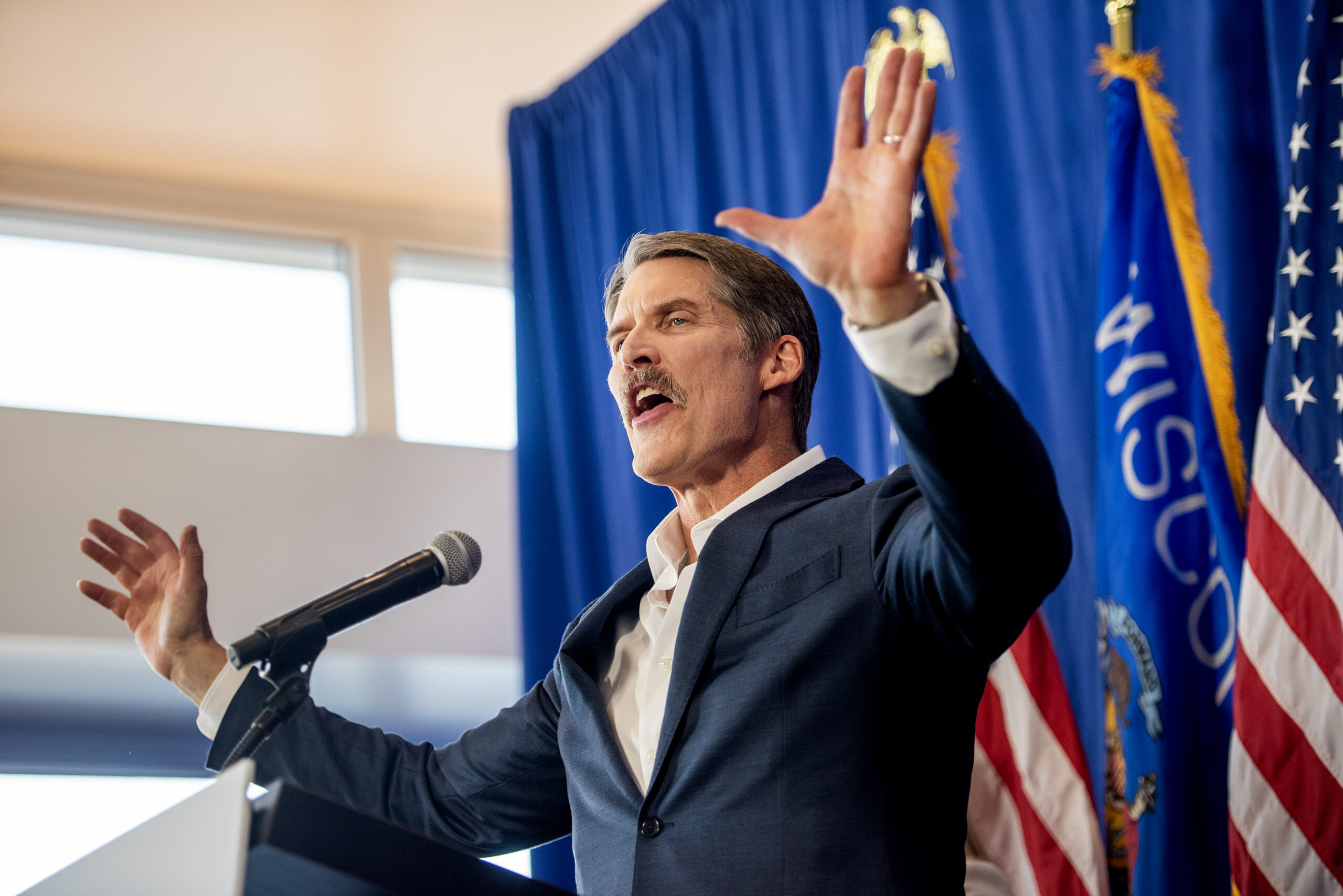
Abortion is still on the ballot in Wisconsin
As it has been in every major election since the U.S. Supreme Court overturned federal abortion protections in 2022, abortion access is likely to be a major theme in the Baldwin-Hovde matchup.
During her visit to Fort Atkinson, Baldwin focused on conservative Justice Clarence Thomas’ questioning whether other landmark decisions of the past on issues like contraception and same sex marriage should be revisited by the current court. She said it was all part of a movement of individuals she described as “extremists” working to “take away our rights and freedoms.
Baldwin touted the Respect for Marriage Act, enacted in December 2022, as an example of how Democrats “can stand up to the extremists” and win. It solidifies same-sex marriage rights, and even drew the support of 12 Republican Senators.
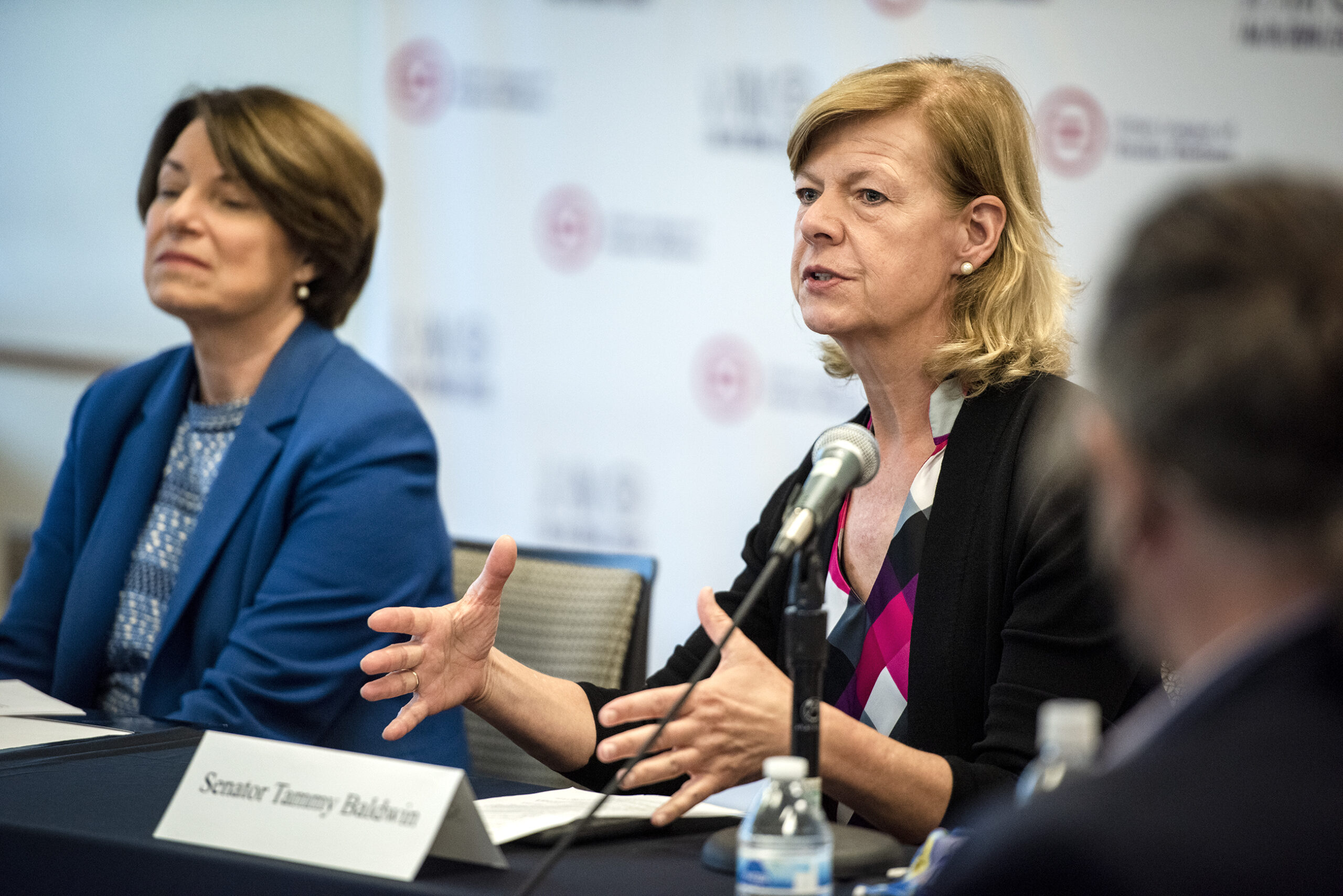
Still, if the U.S. Supreme Court were to overturn a 2015 ruling that found same-sex marriage is constitutionally protected, the issue would go back to being decided by individual states.
Hovde has been notably quiet about abortion issues in campaign speeches and ads during his latest Senate run. But when he competed against former Republican Gov. Tommy Thompson in a 2012 GOP Senate primary in Wisconsin, he said he was “totally opposed to abortion” and “100 percent pro-life.”
Hovde’s campaign spokesman Ben Voelkel has told reporters his position has changed and the Republican now supports exceptions for cases of rape, incest and to protect the life of the mother. Hovde has also said “the people of Wisconsin” should decide the abortion question, which is reminiscent of Republican U.S. Sen. Ron Johnson’s pitch for a nonbinding statewide referendum that would ask residents to decide “at what point does society have the responsibility to protect the life of an unborn child.”
Is Wisconsin’s Senate race a top priority for Republicans, Democrats?
While both major parties are clearly invested in the outcome of the race, Chergosky said it doesn’t appear to be at the top of the list of seats national Republicans are hoping to flip.
He said Republicans are focusing more on Senate seats in states like Montana and Ohio. Chergosky said Democrats appear to be trying to make Republican seats in states like Texas and Florida more competitive for their party.
Early polling shows Baldwin ahead of Hovde, though the gap has closed slightly. Chergosky said those polls don’t mean much at this point and none of that implies “it’s going to be a cakewalk for Tammy Baldwin” to keep her seat.
“Certainly, Democrats have to win Wisconsin if they have any hopes of maintaining their majority in the U.S. Senate,” Chergosky said. “But then Democrats have to go beyond winning Wisconsin and win states like Arizona, Montana, and Ohio. For Republicans, Wisconsin would not be the decisive state if they ended up winning majority control of the Senate.”
Wisconsin Public Radio, © Copyright 2025, Board of Regents of the University of Wisconsin System and Wisconsin Educational Communications Board.
